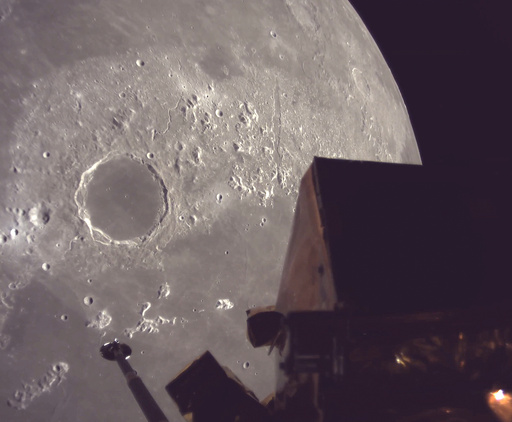Earlier this month, a Japanese lunar lander operated by ispace failed during its mission due to an issue with a laser navigation tool, leading to a crash landing on the moon. The announcement came from ispace officials stationed in Tokyo on Tuesday. This incident marks the second lunar landing failure for the company in the span of two years.
The lander, named Resilience, was intended to target the moon’s distant northern region known as Mare Frigoris, or the Sea of Cold. However, images sent by NASA’s Lunar Reconnaissance Orbiter last week revealed the crash site where Resilience, along with its small rover, lay in ruins.
Company representatives attributed the mishap to the lander’s laser range finder, which failed to activate on time, impacting its ability to accurately assess the distance to the lunar surface. As Resilience was descending, it was moving at a speed of 138 feet (42 meters) per second when communication ceased, resulting in a crash within five seconds.
The first lunar lander from ispace also succumbed to a crash in 2023, caused by faulty software during the final stages of descent. Comparably, out of the seven recent lunar landing endeavors by private companies, only Firefly Aerospace has achieved complete success with the Blue Ghost lander in March. Sharing a SpaceX rocket launch from Florida with Resilience in January, Blue Ghost managed to successfully land.
Beyond private companies, five nations have accomplished successful moon landings: the Soviet Union, the U.S., China, India, and Japan. Notably, the U.S. remains the single nation to have sent astronauts to the lunar surface during NASA’s Apollo missions over fifty years ago.
Despite these setbacks, ispace remains committed to pursuing its third moon landing attempt slated for 2027, this time collaborating with NASA, and they have also planned a fourth expedition. Additional testing and necessary enhancements will increase development expenses by up to 1.5 billion yen, which is equivalent to over $10 million, as declared by company officials.
Takeshi Hakamada, the CEO and founder of ispace, emphasized that the company has resolved to continue progressing despite past challenges, and is focused on rebuilding trust with its clients. An external panel of experts will be included in the accident assessment process, and ispace will work closely with the Japanese Space Agency to address technical concerns.nn”We’re firmly taking the next step toward our future missions,” he stated in Japanese.


